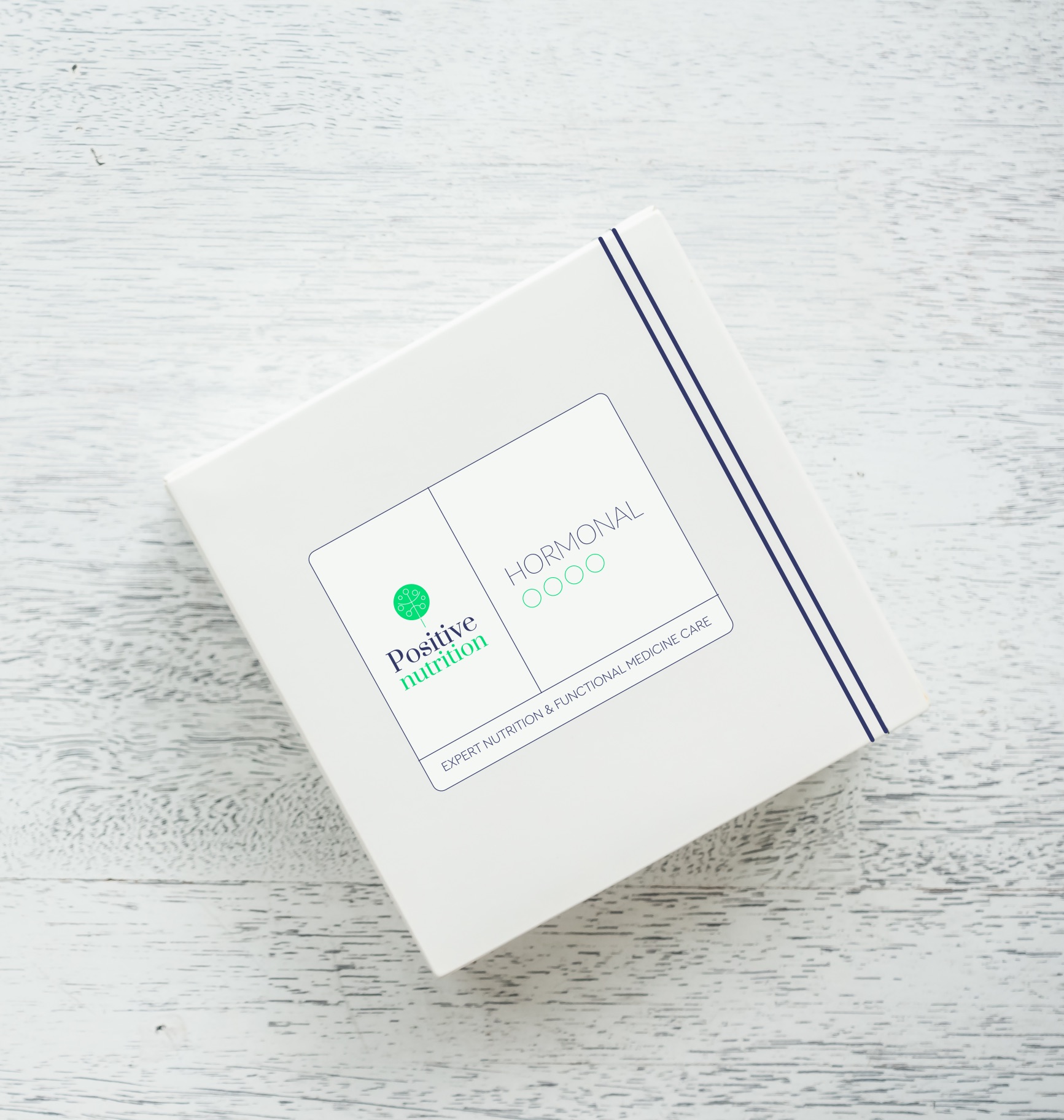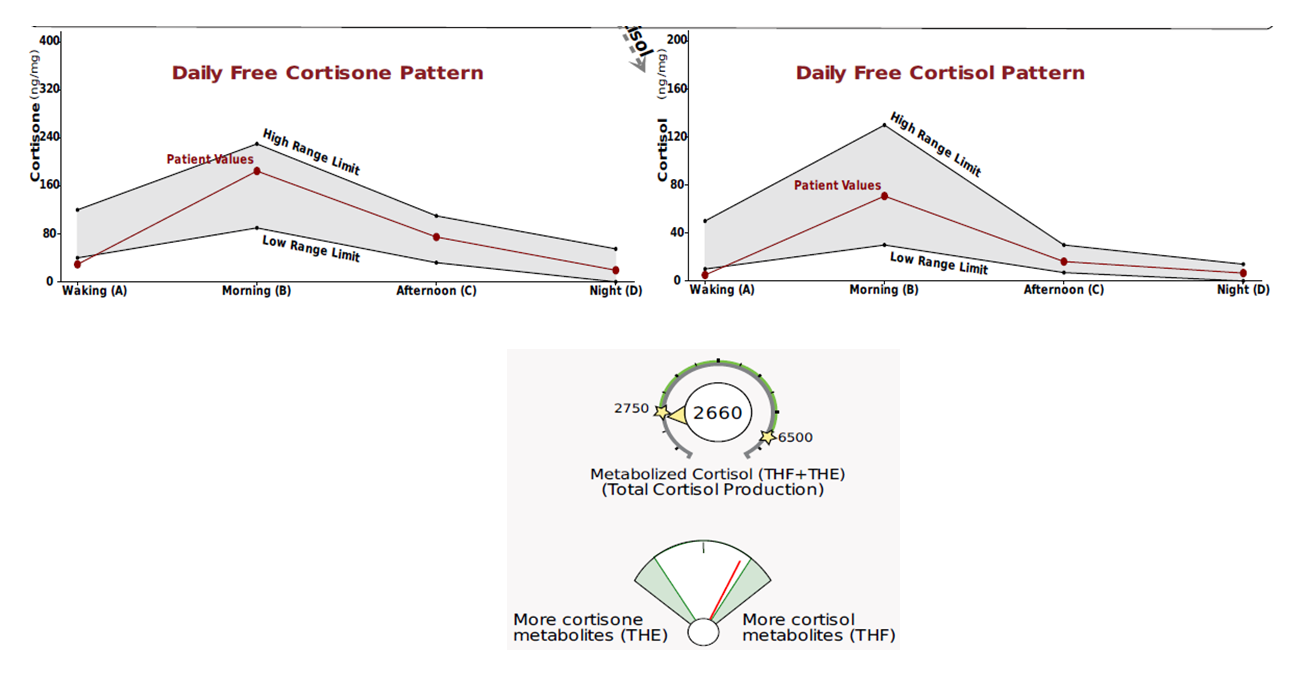Adrenal Stress test


Adrenal Stress test
€124.00
This test can detect imbalances in the stress hormones cortisol, cortisone and DHEA produced by the adrenal glands. This gives detail about the impact of short and longer term stress.
Who can benefit from this test?
Your nutritionist may recommend this test if you have:
- Hormonal imbalances such as PMS, loss of libido, mood changes
- Weight changes, weight loss resistance
- Poor immune responses and recurring infections
- Insomnia, depression, mood issues, anxiety, panic attacks
- Chronic fatigue, low energy

Learn More about our Adrenal Stress test
Urine sample (at-home)
The adrenals are responsible for the secretion of the body’s major stress hormones, cortisol, cortisone and DHEA. These hormones are not released constantly throughout the day, but are secreted in a cycle called the circadian rhythm, with the highest values being in the morning and the lowest at night. The test accurately measures the levels of hormones by detecting the free fraction (bioactive) component at four time points over the day with a urine sample.
This test is more advanced than other 4-point tests as it also measures hormone metabolites, which indicates the total hormone production over the day. The free fraction is important as the bio-active component but the total production also gives critical information about ‘burn-out’ levels, excess production or issues with the metabolism of your cortisol hormones.
This test measures:
- Free cortisol (active form) and free cortisone (inactive form) over the course of the day
- Total metabolites of cortisol and cortisone
- DHEA (hormone precursor to cortisol)
John had been experiencing fatigue and difficulty concentrating at work. He was trying to increase his exercise and fitness but found that he would be overly exhausted the day after and recovery was difficult. His work day was very busy and stressful and his eating pattern was irregular.
His adrenal stress test showed low morning cortisol and cortisone, indicating that his body was not recovering well at night and his ‘get up and go’ signals in the morning were reduced. His overall cortisol production was low also, likely indicating the effect of long term stress.
He adapted a morning routine including gentle stretching and positive affirmations, early morning sunlight exposure and other lifestyle interventions. He also incorporated a better sleep routine to support over night recovery. He started to eat more regularly through the day, importantly including a balanced breakfast. He also included adaptogen herbal support and specific nutrients to support adrenal recovery. Over time, his energy and balance through the day began to improve.
Key findings (excerpt from test):
- Low morning cortisol (active) and cortisone (inactive) levels indicating poor overnight recovery and reduced activation in the morning
- Low overall production of cortisol indicating possible longer term issues and depletion
